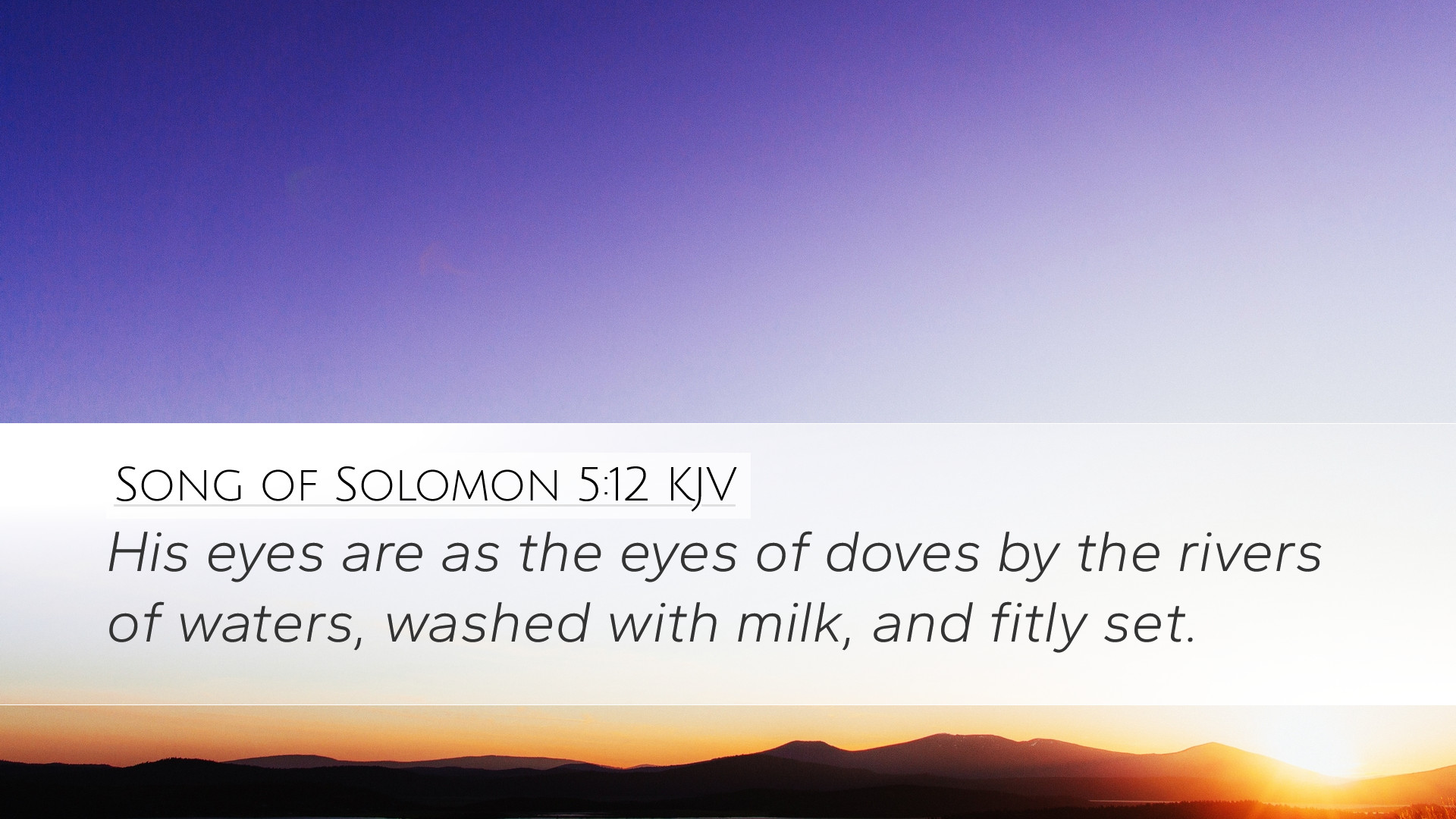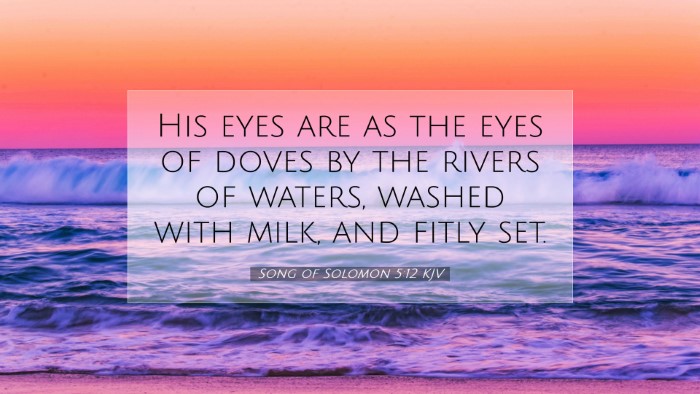Commentary on Song of Solomon 5:12
Verse Text: "His eyes are like doves, beside the rivers of waters, washed with milk, and fitly set." (Song of Solomon 5:12)
Introduction
The Song of Solomon, often regarded as one of the most profound poetic expressions of love in the Bible, uses rich imagery and metaphor to convey the beauty and intimacy of love. In chapter 5, verse 12, we see a striking depiction of the beloved's eyes. This commentary synthesizes insights from public domain commentaries, focusing on the significance of this imagery and its implications for understanding love, beauty, and spiritual truths.
Imagery of the Eyes
The eyes are often described as the windows to the soul. In this passage, the eyes of the beloved are likened to doves, which conveys a sense of purity and gentleness. Matthew Henry captures this beautifully, suggesting that “doves are known for their gentle nature and are often associated with peace.” The delicate nature of doves evokes the innocence and sincerity found in true love.
Albert Barnes expands on this imagery, noting that doves are “usually found near water.” The connection to rivers symbolizes a source of life and refreshment, emphasizing that love, much like water, is essential and nurturing. The eyes being “washed with milk” denotes a level of purity and satisfaction, suggesting that the beloved's gaze is not only beautiful but also speaks of abundance and nourishment.
Adam Clarke adds depth by pointing out that “fitly set” indicates a careful arrangement, implying that the beloved’s beauty and charm are intentional, crafted to captivate and draw in the beholder. This alludes to the divine artistry in creation, hinting that the beloved reflects the glory of the Creator.
Theological Significance
This verse does more than simply celebrate physical beauty; it invites deeper reflection on the nature of divine love. The reference to doves and water can be interpreted as a metaphor for the Holy Spirit and the life-giving truth found in Christ. Just as doves symbolize peace, the gaze of the beloved points to a love that brings tranquility to the soul.
Henry suggests that the characteristics of the beloved’s eyes reflect the presence of Christ within the Church. The Church, as the bride of Christ, is invited to see and to be seen by Him. Therefore, the eyes of the beloved serve as a reminder of how believers should strive to reflect Christ’s love and purity in their lives.
The washing of the eyes with milk further connects to themes of spiritual sustenance. Milk is often a Biblical metaphor for spiritual nourishment, represented in passages like 1 Peter 2:2. This alludes to the notion that true love in a relationship is nurtured by daily spiritual feeding and growth in Christ.
Application for Pastors and Theologians
This verse offers profound implications for pastoral care and theological reflection. The joy and emotional depth encapsulated in this poetic depiction of love can serve as a guide for counseling engaged couples or teaching about romantic relationships based on biblical principles.
- Encouraging Purity: Pastors can use the imagery of “washed with milk” to encourage congregations about the purity and high calling of love.
- Promoting Peace: The connection to doves and their symbolism of peace can remind believers of the necessity to foster peace in relationships, echoing Christ’s call to love and harmony.
- Understanding Divine Love: The theological implications of this verse can deepen the understanding of God’s love for His people, prompting deeper discipleship and a richer relationship with Christ.
Conclusion
In Song of Solomon 5:12, the beauty of the beloved’s eyes invites readers into a deeper understanding of love, beauty, and spiritual intimacy. The combination of the gentle imagery of doves coupled with the healing and nurturing qualities of water and milk serves to illustrate the nature of love as something both divine and profoundly human. This verse calls believers to reflect Christ’s love, expressing purity and peace in their relationships.


